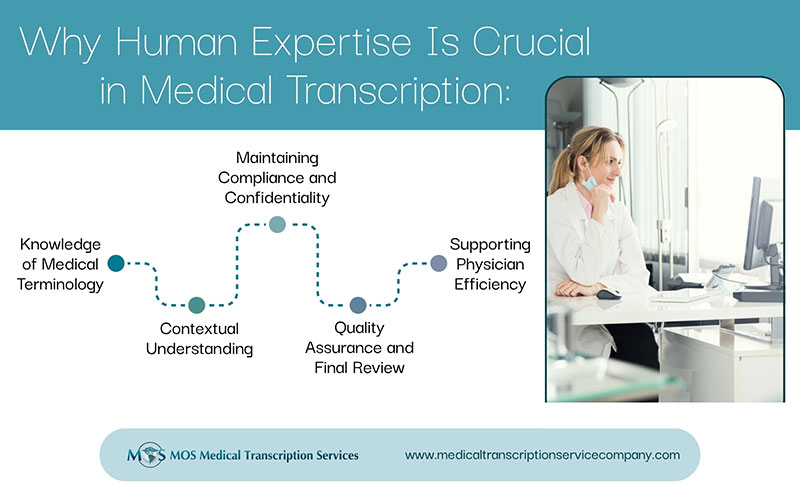 The role of a transcriptionist involves reproducing recorded dictation in accurate digital text format. The recorded content could be interviews, meetings, focus group discussions, single person dictations, voice mails and so on. Transcription generally falls under three broad headings – medical transcription, legal transcription, and general transcription. General transcription covers many areas such as business, finance, academics, media, and more, and involves the documentation of audio and video recordings related to general topics discussed in radio shows, voice mail, conference calls, police reports, interviews, seminars, and podcasts. However, as in the case of legal transcription, medical transcription is industry specific and the task of producing accurate medical reports is much more challenging than documentation for any other type of industry. The reasons for this are as follows:
The role of a transcriptionist involves reproducing recorded dictation in accurate digital text format. The recorded content could be interviews, meetings, focus group discussions, single person dictations, voice mails and so on. Transcription generally falls under three broad headings – medical transcription, legal transcription, and general transcription. General transcription covers many areas such as business, finance, academics, media, and more, and involves the documentation of audio and video recordings related to general topics discussed in radio shows, voice mail, conference calls, police reports, interviews, seminars, and podcasts. However, as in the case of legal transcription, medical transcription is industry specific and the task of producing accurate medical reports is much more challenging than documentation for any other type of industry. The reasons for this are as follows:
- Professionals doing general transcription deal with a wide variety of interesting topics which are relatively easy to handle. Medical transcriptionists have to document digitally recorded dictation related to complex medical conditions.
- Medical transcribing has tougher and tighter deadlines than regular transcribing work which generally involves more flexible turnaround times. Medical transcriptionists have to focus on their work for continuous hours and have a pressure-resistant mindset.
- When transcribing for the medical industry, the computer, headphones, dictation tools and all needs to be the best to avoid any interruptions; things could be handled more lightly in regular transcription.
- When it comes to matter of accuracy, anything less than 99% is questionable in medical documentation as simple errors can lead to dire consequences and affect patient health and care. Even though accuracy matters in other types of transcription, it not as critical as for medical documentation.
- Formal training is not a must for general transcription, whereas it is a must for an individual who wants to perform documentation for health care professionals. Formal medical transcription courses cover medical record formatting, English language and grammar lessons, medical terminology relating to all specialties, medical abbreviations and slang, diagnostic tests, and much more.
Even with the implementation of electronic health record and voice dictation systems, medical transcription services continue to be relevant when it comes to ensuring comprehensive health care documentation for proper patient care and smoother workflow in physician practices.


